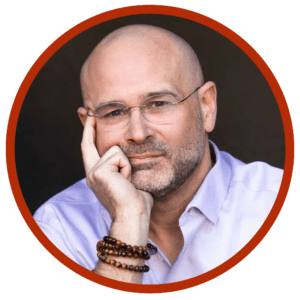Hey, mindfulness. What’s up? It’s been a while since we talked, hasn’t it? I’ve been thinking about you a lot lately. You’re a pretty cool concept, but you’ve gotten a little too popular for your own good. What happened to you? You used to be all about staying true to your source, but now you’re a watered-down version of yourself.

Key Points
- Mindfulness can be a powerful tool for self-reflection and living your life’s purpose.
- Mindfulness has been around for a long time, but it is only recently that people have started to take notice of its potential.
- This article discusses the true nature of mindfulness and how it can help you find clarity on what brings joy from within.
The True Nature of Mindfulness
“The goal is not to control your thoughts, it’s to stop letting them control you”
The Buddha
When you hear the word “mindfulness,” it brings an array of ideas and feelings to mind. We live in a free world where everyone can create their own meanings for things. They can base these on what they see on television or in magazines without any socially-imposed boundaries. Now, there’s nothing wrong with this. As long as you stay true to your original intent.
The concept of mindfulness has lost some very essential aspects. Including what exactly makes someone mindful anyway?!
This is due to its popularity among recent generations. Which also happens to be one defined by high levels of consumerism.
Many people have little more than a vague idea when they think about mindfulness. But very few understand the true essence of this phenomenon. And instead, settle for a superficial understanding. They could just as easily get lost on some unknown journey. Without realizing there were other possible destinations. -which would mean missing out entirely!
Mindfulness has a much greater range than thoughts. It lies beyond human comprehension because of who we are. It also requires effort from those seeking knowledge. This makes its understanding difficult at best.
What is mindfulness? It’s a question that many people have been asking themselves. Especially those who are lost and looking for answers. Or those just trying to find something they can call home again after being uprooted by life’s challenges.
Understanding it as something achievable but not easy– may not seem so glamourous on paper. However, when you take your first steps towards reaching clarity, everything becomes clear. You get clarity on what brings joy from within.
In today’s fast-paced world, everybody wants everything now. There has never been more pressure than ever before. We live under constant deadlines, which pile up throughout each day. And yet still manage time management issues at work. Stress levels are at an all-time high, with mental health issues becoming more frequent.
So, let’s start with this question that everyone asks.
What is mindfulness?
“To understand the immeasurable, the mind must be extraordinarily quiet, still”
J. Krishnamurti
Instead of diving right into the actual definition of mindfulness, let’s first talk about what most people think it is. The popular idea is that being mindful is about paying attention to your breath, what you eat, how you walk, how you talk, and everything else you do.
What’s the point?
Often, the answer to that is something along the lines of relieving stress, being calmer, making work more efficient, and so on. And that’s where the main trouble is. These are benefits. But they’re not the goal. I don’t dedicate my time to helping people be less stressed, calmer, or more productive. While those are noble, I’m going for something bigger. More meaningful. Because that’s what I’ve experienced.
We’re really missing it when thinking about it for just stress reduction, calm, productivity, etc. It’s like we’ve been given a fighter jet, and we’re taking it out on the streets.
Mindfulness has been around for a long time, and many teachers made it popular in the West. Great masters like Osho and J. Krishnamurti put emphasis on being present in the moment. This is not just about feeling good about our work or relationships-they did so much more than we thought!

The True Purpose
To paraphrase J. Krishnamurti, “Mindfulness is not a means to an end. It is both the means and the end.”
Ancient Buddhist teachers first raised the idea that we can find our life’s meaning through mindfulness. They taught their students to be mindful of all pain. In a world without suffering, what need would there have been for this teaching?
The truth is, we’re always looking outside ourselves. In search of something more fulfilling. Rather than just living each day as it comes. With whom do you really do what you need, emotionally or spiritually? When your goals don’t seem reachable anymore, you feel empty inside.
When we want to reach the essence of mindfulness, we need to go beyond all these benefits. We need to see what’s really going on.
Otherwise, we’re just deceiving ourselves about the whole thing.
We are always trying to find that perfect feeling of completion. It’s a holy grail we all seek. It shapes the way you live your life. What kind of person will remain content with their lot in this world or any other for that matter?
The truth is there isn’t one answer. Each person has their own unique story behind why they were hurt. Even despite being successful at some point during adulthood (or childhood). All I’m saying here things should become clear once you explore deeper into the details of this story. We’re talking more than work-related issues here!
Everyone has the urge to fill that empty space in their life with something. What is it for you? Some people put wealth on their bucket lists. Others will search high and low until they find someone or something else. Even if this takes years of searching (like my senior year). There’s no one answer to what gives us purpose and fulfillment. It all varies from person to person. Make sure yours isn’t just another lie told by society: “This should bring us happiness.” After a while, all those promises disappear into thin air as well. The cycle goes on and on and on.
When we try to make the pain go away, it causes even more suffering by focusing on a solution that does not exist in reality. We are very much asleep. We have been brainwashed with many ideas about what makes people happy. None of which work for everyone, and unlikely ourselves!
We are suffering. Sometimes, the problem is when we think something will make us happy for a while, like buying that new car. It doesn’t work out that well. Instead, in the end, it just brings more distress or regrets into our lives. Its shiny surface glossiness faded quickly underneath harsh conditions. Most things shine brightly at first but then become dark all too soon after you’ve driven off. Leaving behind only debris from this broken dream coasting towards an uncertain future.
We all have ideas when we’re young. Some of them seem to us like they’re ours and not somebody else’s. But in reality, most of what we think about is borrowed from other people or cultures. It would be different if you were born into a foreign country with its own set of values. Then everything that made up your worldview would really belong only there. Not just some parts here and there because those bits were picked up along the way.
We are sure that one day, our lives will be finished. If you want to believe your life will one day be complete too, there’s nothing wrong with that. We might even call it a goal for our lifetimes! But the problem comes when we try to do things our way, even though “our” isn’t ours. Every part of us, but not really us.
The pain and yearning for completeness are at the core of mindfulness. The quest to find understanding that resonates with our being can be found in many teachings. Great teachers from Osho, J Krishnamurti. All of them were trying to teach this one thing only.
Get the free guide Quiet Confidence: A Men’s Guide to Living a Free, Authentic, Joyful, Centered, & Purposeful Life”
This workbook will provide you with an introduction to mindfulness as a foundation for living a more deliberate, authentic, purposeful life of peace, freedom, health, and fulfillment.
You’ll also signup for the newsletter to get valuable content right in your inbox.
Your privacy is respected. Data will never be sold or shared. Unsubscribe at any time.
Putting mindfulness into context
Now that we know what mindfulness is all about, we can finally put it into context and put it in the right place. Mindfulness is all about knowing yourself and your surroundings. It’s not just a process. But instead, the result of putting effort into understanding how we operate in this world. It can be used for personal growth or social change with purposeful intentionality.
We are asked to look at what our thoughts, feelings, and actions reveal about us. Why? So that you can learn more about yourself. The only way to honestly know yourself is through self-discovery. Your thoughts and feelings might even surprise you if you paid attention.
Mindfulness is a powerful tool for cutting through to the roots of stress and anxiety. It can help you see what’s underlying your feelings. It was like an idea or thought that was so deep inside us that we didn’t realize it was there until now. And then cut out those painful nerve endings with mindful attention.
All you need is a little courage and trust to do this. It’s essential to believe in yourself. When we get rid of all our ideas and notions, we will see ourselves first. A person would still be able to feel their own pain. But not having that pain control, you would be beautiful. In fact, much more beautiful than the superficial happiness and pleasures that we enjoy.
We will then live a good life. One that is focused on our true purpose. We’ll all do the right things, live a good life, and feel happy inside. This happiness is called joy. The joy of living a good life is too subtle for most people to feel. But its radiating splendor is too extraordinary to turn away from. The Tibetans have a word for this, ziji.
It is who we are, what we can be, and what we all deserve.
Final Thoughts
“There’s no greater luxury than meditation. Meditation is the last luxury, the ultimate love affair”
Osho
Mindfulness has been around for quite a while, but only recently have people started taking notice. It’s not just an exercise or technique to help you relax. Using mindfulness trains our brains in different ways. We’re better able to see what life is really about-the good moments as well as bad ones.
It was, however, the marketing machines and neo-liberal corporate people who saw this tool as something they could “sell” to people. They made a very dull version of it. Their philosophy: Use this tool to get rid of stress and anxiety so you can keep doing the very thing that makes you stressed even more. Commercial forces want us stressed out because it makes them seem more important than ever before.
This article is not written to make you feel better because consolation would be useless to you. This is written to give you a small taste of true wisdom, so you can learn from it. However, one article won’t be enough for a person with an intelligent mind to look for. Find your own answers.
This is best said by 17th-century Japanese poet and Zen Master Matsuo Bashō:
“Do not seek to follow in the footsteps of the wise; seek what they sought. Seek the meaning behind their footsteps, and not upon the steps themselves. For in seeking the footsteps you shall be glancing only upon the next footprint. And you’re sure to stumble upon an unforeseen obstacle.
But in seeking the meaning behind their footsteps, you’re sure to see ahead; comparable to looking up while walking. Thus allowing you to easily maneuver around the hurdles on the path you walk.
…And if you walk like this long enough, you’ll one day, to your surprise, find yourself among the wise.”
Matsuo Bashō
After all, the real goal of being mindful is to come to know yourself better. We all want to know ourselves better. And when we do, it’s like we’re having the best time of our lives. Because really, this is what life is supposed to feel like!
The goal isn’t to control your thoughts; it’s to stop letting them control you, man.
“Good questions outrank easy answers.” – Paul A. Samuelson (American economist)
- “The true nature of mindfulness is self-reflection.” Do you agree or disagree? Why?
- How can mindfulness help us live our life’s purpose?
- What are some methods for practicing self-reflection?
- Why do we need to practice self-reflection?
- How do we know if we’re living a mindful life?
Want more? Get the free guide “Quiet Confidence: A Men’s Guide to Living a Free, Authentic, Joyful, Centered, & Purposeful Life“
This workbook will introduce mindfulness as a foundation for living a more deliberate, authentic, purposeful life of peace, freedom, health, and fulfillment.






